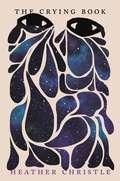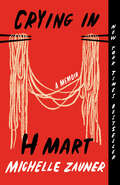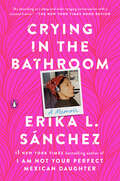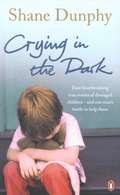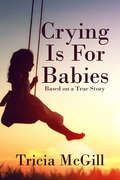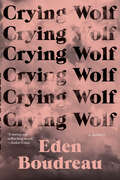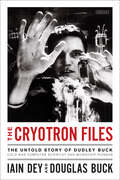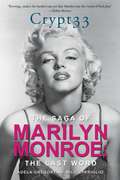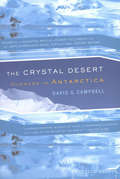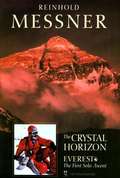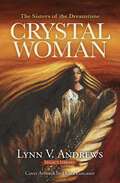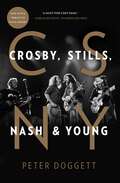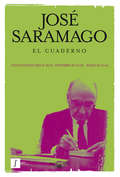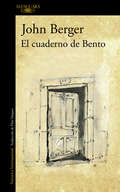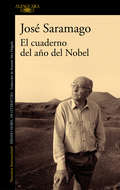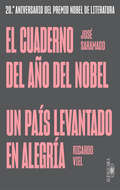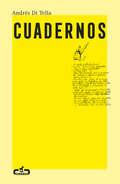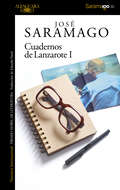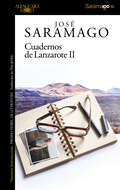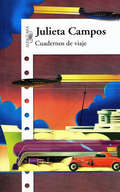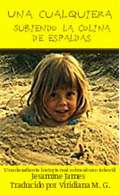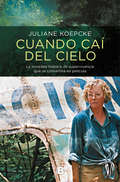- Table View
- List View
The Crying Book
by Heather Christle'A deeply felt, and genuinely touching, book' Esmé Weijun Wang, author of The Collected Schizophrenias'Spellbinding and propulsive' Leni Zeumas, author of Red Clocks'The Crying Book is a rigorous and urgent work but it reads like an intimate gift' Kaveh Akbar, author of Calling a Wolf a WolfA DAZZLING MEDITATION ON TEARSIn this symphonic work of non-fiction, Heather Christle explores the most human of behaviours: crying. What are tears made of? Why do people cry? And why is this common, crucial act so rarely discussed? Christle unpacks the biological reasons for tears and investigates the influence of crying on art, politics, feminism, race and culture, all while opening up the intimate story of her own tears - from the suicide of her close friend to her family's history of depression, to her pregnancies, both planned and unplanned. In these pages, we meet a feminist artist who designs a gun that shoots frozen tears. A moth that takes sustenance from feeding on the tears shed by other animals. And beautifully impractical devices for dealing with grief such as the 'lachrymatory', an ancient receptacle into which it was hoped 'a mourner could let fall her hot tears'. While Christle enchants us with poetic snippets on these subjects, a powerful investigation begins to accrue, examining how the history of tears is tied up with racist violence, with the stigma of mental illness, and with the ways in which glib contemporary images of motherhood fail to reckon with how rich and complicated is actually is.Brilliant, witty and achingly honest, Christle's book creates a mosaic of science, history, culture and personal experience to find new ways of understanding life and loss. The Crying Book is a deeply intimate tribute to the fascinating strangeness of tears - and the unexpected resilience of joy.Honest, intelligent, rapturous and surprising, The Crying Book is a poignant, personal tribute to the astonishing strangeness of tears and the startling resilience of joy.
Crying in H Mart: A Memoir
by Michelle Zauner#1 NEW YORK TIMES BESTSELLER • From the indie rock sensation known as Japanese Breakfast, an unforgettable memoir about family, food, grief, love, and growing up Korean American—&“in losing her mother and cooking to bring her back to life, Zauner became herself&” (NPR). • CELEBRATING OVER ONE YEAR ON THE NEW YORK TIMES BESTSELLER LISTIn this exquisite story of family, food, grief, and endurance, Michelle Zauner proves herself far more than a dazzling singer, songwriter, and guitarist. With humor and heart, she tells of growing up one of the few Asian American kids at her school in Eugene, Oregon; of struggling with her mother's particular, high expectations of her; of a painful adolescence; of treasured months spent in her grandmother's tiny apartment in Seoul, where she and her mother would bond, late at night, over heaping plates of food. As she grew up, moving to the East Coast for college, finding work in the restaurant industry, and performing gigs with her fledgling band--and meeting the man who would become her husband--her Koreanness began to feel ever more distant, even as she found the life she wanted to live. It was her mother's diagnosis of terminal cancer, when Michelle was twenty-five, that forced a reckoning with her identity and brought her to reclaim the gifts of taste, language, and history her mother had given her.Vivacious and plainspoken, lyrical and honest, Zauner's voice is as radiantly alive on the page as it is onstage. Rich with intimate anecdotes that will resonate widely, and complete with family photos, Crying in H Mart is a book to cherish, share, and reread.
Crying in the Bathroom: A Memoir
by Erika L. Sánchez&“Equal parts pee-your-pants hilarity and break your heart poignancy- like the perfect brunch date you never want to end!"--America Ferrera, Emmy award-winning actress in Ugly Betty From the New York Times bestselling author of I Am Not Your Perfect Mexican Daughter, an utterly original memoir-in-essays that is as deeply moving as it is hilariousGrowing up as the daughter of Mexican immigrants in Chicago in the nineties, Erika Sánchez was a self-described pariah, misfit, and disappointment—a foul-mouthed, melancholic rabble-rouser who painted her nails black but also loved comedy, often laughing so hard with her friends that she had to leave her school classroom. Twenty-five years later, she&’s now an award-winning novelist, poet, and essayist, but she&’s still got an irrepressible laugh, an acerbic wit, and singular powers of perception about the world around her. In these essays, Sánchez writes about everything from sex to white feminism to debilitating depression, revealing an interior life rich with ideas, self-awareness, and perception. Raunchy, insightful, unapologetic, and brutally honest, Crying in the Bathroom is Sánchez at her best—a book that will make you feel that post-confessional high that comes from talking for hours with your best friend.
Crying in the Dark
by Shane DunphyFour extraordinary true stories. . . Bobby and Micky, six and four, controlled from beyond the grave by their evil father. . . Mina, seventeen, who has Downs Syndrome, desperate to be like everyone else, falling into the hands of men who abuse her trust. . . Sylvie, a fourteen-year-old mother being pimped by her father. . . Twins Larry and Francey, ten, scarcely human after an upbringing of savage and unimaginable cruelty. . . One inspiring account of how one man got to know these wounded children and tried to give them hope - and a future.
Crying is for Babies: Based on a True Story
by Tricia McGillIn the 1930s medicine was still very much a hit and miss affair. The surgeons were still experimenting and learning about the human body. This at a period when there was little in the way of pain relief. This is one woman’s story about a childhood ruined by such surgeons, whose bad judgement confined an eight-year-old subsequently to bed for three years and left her with a disability to last a lifetime. Nowadays she would have been given bed rest and pain relief, and in no time would have been up and running again. Her strong will, and the love of a close family, saw her through the bad times, enabling her to go on and become the talented, remarkable person she was. I know because this woman was my sister.
Crying Wolf: A Memoir
by Eden BoudreauIt's a tale as old as time. Girl meets boy. Boy wants girl. Girl says no. Boy takes what he wants anyway. After a violent sexual assault, Eden Boudreau was faced with a choice: call the police and explain that a man who wasn't her husband, who she had agreed to go on a date with, had just raped her. Or go home and pray that, in the morning, it would be only a nightmare.In the years that followed, Eden was met with disbelief by strangers, friends, and the authorities, often as a result of stigma towards her non-monogamy, sex positivity, and bisexuality. Societal conditioning of acceptable female sexuality silenced her to a point of despair, leading to addiction and even attempted suicide. It was through the act of writing that she began to heal.Crying Wolf is a gripping memoir that shares the raw path to recovery after violence and spotlights the ways survivors are too often demonized or ignored when they belong to marginalized communities. Boudreau heralds a new era for others dismissed for "crying wolf." After all, women prevailing to change society for others is also a tale as old as time.
The Cryotron Files: The Untold Story Of Dudley Buck, Pioneer Computer Scientist And Cold War Government Agent
by Iain Dey Douglas BuckThe riveting true story of Dudley Buck, the American computer scientist whose pioneering work with microchips placed him firmly in the sights of the KGB Dr. Dudley Allen Buck was a brilliant young scientist on the cusp of fame and fortune when he died suddenly on May 21, 1959, at the age of 32. He was the star professor at MIT and had done stints with the NSA and Lockheed. His latest invention, the Cryotron—an early form of the microchip—was attracting attention all over the globe. It was thought that the Cryotron could guide a new generation of intercontinental ballistic missiles to their targets. Four weeks before Dudley Buck’s death, he was visited by a group of the Soviet Union’s top computer experts. On the same day that he died from a mysterious sudden bout of pneumonia, his close colleague, Dr. Louis Ridenour, was also found dead from similar causes. Two top American computer scientists had unexpectedly died young on the same day. Were their deaths linked? Two years old when his father died, Douglas Buck was never satisfied with the explanation of his father’s death and has spent more than 20 years investigating it, acquiring his father’s lab books, diaries, correspondence, research papers and patent filings. Armed with this research, award-winning journalist Iain Dey tells, with compelling immediacy, the story of Dudley Buck’s life and groundbreaking work, starting from his unconventional beginnings in California through to his untimely death and beyond. The Cryotron Files is at once the gripping narrative history of America and its computer scientists during the Cold War and the dramatic personal story of rising MIT star Dudley Buck in the high-stakes days of spies, supercomputers, and the space and nuclear race.
Crypt 33: The Last Word
by Adela Gregory Milo SperiglioThe Shocking Truth Behind Marilyn's Death--Revealed at LastShe was an icon, a sex symbol, and a living legend. But when she was found naked and dead on the morning of August 5, 1962, Marilyn Monroe became the subject of a mystery that has fascinated and perplexed the world for generations. Was her death an accident? Suicide? Or murder? In this riveting account, private investigators Gregory and Speriglio uncover startling evidence that may solve the case once and for all. Crypt 33 reveals:The truth about Marilyn's affairs with JFK and Robert KennedyThe top-level government secrets that endangered Marilyn's lifeHow Marilyn pulled strings as a political power playerThe identity of the friend who knowingly opened the door to Marilyn's killersThe startling connection between JFK's father and mobster Sam Giancana Evidence of the deadly drugs and how they were administered to MarilynThe rumors of an assassination plot masterminded by the Cosa Nostra and and high-ranked government officialsWhat happened to the audio tape recording of Marilyn's murderThe tangled web of wiretaps in Marilyn's homeWhy Joe DiMaggio sent flowers to Marilyn's grave for years Half a century after her death, Marilyn Monroe still lives in our hearts. Now, at last, the truth can be told."Spiriglio and Gregory are fluent, convincing writers." --Publishers Weekly"The best autopsy of Marilyn Monroe." --Cyril H. Wecht, M.D., J.D., author of From Crime Scene to Courtroom
Crystal Clear
by Eric Le Marque Davin SeayIn this gripping first-person account, former Olympian Eric LeMarque recounts a harrowing tale of survival—of eight days in the frozen wilderness, of losing his legs to frostbite, and coming face-to-face with death. But Eric’s ordeal on the mountain was only part of his struggle for survival—as he reveals, with startling candor, an even more harrowing and inspiring tale of fame and addiction, healing and triumph. On February 6, 2004, Eric, a former professional hockey player and expert snowboarder, set off for the top of 12,000-foot Mammoth Mountain in California’s vast Sierra Nevada mountain range. Wearing only a long-sleeve shirt, a thin wool hat, ski pants, and a lightweight jacket—and with only four pieces of gum for food—he soon found himself chest-high in snow, veering off the snowboard trail, and plunging into the wilderness. By nightfall he knew he was in a fight for his life…Surviving eight days in subfreezing temperatures, he would earn the name “The Miracle Man” by stunned National Guard Black Hawk Chopper rescuers. But Eric’s against-all-odds survival was no surprise to those who knew him. A gifted hockey player in his teens, he was later drafted by the Boston Bruins and a 1994 Olympian. But when his playing days were over, Eric felt adrift. Everything changed when he first tasted the rush of hard drugs—the highly addictive crystal meth—which filled a void left by hockey and fame. By the time Eric reached the peak of Mammoth Mountain in 2004, he was already dueling demons that had seized his soul. A riveting adventure, a brutal confessional, here Eric tells his remarkable story—his climb to success, his long and painful fall, and his ordeal in the wilderness. In the end, a man whose life had been based on athleticism would lose both his legs, relearn to walk—even snowboard—with prosthetics, and finally confront the ultimate test of survival: what it takes to find your way out of darkness, and—after so many lies—to tell truth… and begin to live again. From the Hardcover edition.
The Crystal Desert: Summers in Antarctica
by David G. CampbellThe acclaimed author and biologist shares “a superb personal account [of Antarctica] . . . a remarkable evocation of a land at the bottom of the world” (Boston Globe).During the 1980s, biologist David Campbell spent three summers in Antarctica, researching its surprisingly plentiful wildlife. In The Crystal Desert, he combines travelogue, nature writing and science history to tell the story of life's tenacity on the coldest of Earth's continents. Between scuba expeditions in Admiralty Bay, Campbell remembers the explorers who discovered Antarctica, the whalers and sealers who despoiled it, and the scientists who laid the groundwork to decipher its mysteries. Chronicling the desperately short summers in beautiful, lucid prose, he presents a fascinating portrait of the evolution of life in Antarctica and of the continent itself.Winner of the John Burroughs Medal for Natural History Writing and a Houghton Mifflin Literary Fellowship
Crystal Horizon: Everest: The First Solo Ascent
by Reinhold Messner Jill Neate Audrey SalkeldOn August 20, 1980, Reinhold Messner, the world-renowned master of alpine-style climbing, became the first person to reach the summit of Everest solo and without supplemental oxygen. A vivid account of Messner's expedition, The Crystal Horizon also reflects on how he explored his innermost thoughts while facing the most extreme physical challenge he had ever encountered. The furthest point for mind and body he calls his crystal horizon. <p><p> Inspired by the legendary mountaineers George Mallory and Maurice Wilson, Messner embarked on a year-long journey through Tibet to the glittering light and rarified air at the roof of the world. More than an adventure story, this is Messner's profound reflection on his emotional reactions to Tibet, the challenges he faced, and the explorations of self inspired by this amazing journey.
Crystal Woman: The Sisters of the Dreamtime (Medicine Woman Series #5)
by Lynn V. AndrewsFollowing Lynn V. Andrews on the continuation of her life&’s journey as an initiate of a secret organization called the Sisterhood of the Shields, Crystal Woman, the fifth book in the internationally bestselling Medicine Woman series, takes Lynn into Australia and the uncharted territory of the soul.On a quest to free a story that dwells within her spirit, Lynn V. Andrews goes to Australia where she is initiated in the traditional ceremonies of the First Peoples&’ clever women. It is here in the stark desert landscape of the Red Centre, not far from the mysterious Ayers Rock, that this extraordinary woman begins a new cycle in her search for selfhood. With her Cree mentors, Agnes Whistling Elk and Ruby Plenty Chiefs, by her side, Lynn seeks out Ginevee, a member of the Sisterhood of the Shields and a Koori shamaness. It is Ginevee and numerous other women of high degree who teach Lynn to enter the legendary Dreamtime of the Aboriginal peoples of Australia using crystals as energy links and psychic amplifiers. There she encounters ancient sky beings, evil sorcerers, and animal allies, and visits the hidden places of the psyche—where terror lurks in the conflict between male and female selves, where her healing powers are called upon in a battle between the forces of life and death, and where she discovers the knowledge of becoming a whole person that is essential to us all.
CSNY: Crosby, Stills, Nash and Young
by Peter DoggettAn engaging and illuminating biography focused on the formative and highly influential early years of &“rock&’s first supergroup&” (Rolling Stone) Crosby, Stills, Nash, and Young—when they were the most successful, influential, and politically potent band in America.After making their marks in popular bands such as the Hollies and the Byrds, David Crosby, Stephen Stills, and Graham Nash released their first album in May 1969. By the time they arrived at Woodstock a few months later, Neil Young had joined their ranks and together, their transcendent harmonies and evocative lyrics channeled all the romantic idealism and radical angst of their time. Now, music journalist Peter Doggett chronicles these legendary musicians and the movement they came to represent at the height of their popularity and influence: 1969 to 1974. Based on interviews with the band and colleagues, along with exclusive access to CSNY&’s archive, Doggett provides new insights into their incredible catalog, from their delicate acoustic confessionals like &“Suite: Judy Blue Eyes&” to their timeless classics such as &“Our House.&” Doggett also uncovers plenty of new stories and perspectives on the four tenacious and volatile songwriters&’ infamously reckless, hedonistic, and often combative lifestyles that led to their continuous breakups and behaviors—extreme even by rock star standards. &“A must for CSNY fans and anyone who remembers the era when it ruled the pop charts&” (Kirkus Reviews, starred review), CSNY is a quintessential and definitive account of one of the biggest bands of the Woodstock generation.
El cuaderno
by José SaramagoEl cuaderno recoge los comentarios escritos por el Premio Nobel portugués desde que creó su blog hasta marzo de 2009. La obra despierta el interés de los lectores por la lucidez y la inteligencia de Saramago para retratar la realidad de nuestros días. Para la traductora de la obra, Pilar del Río, este libro son seis meses de «notas inteligentes para lectores inteligentes, sin artificios». «Cuando en febrero de 1993 nos instalamos en Lanzarote, conservando siempre casa en Lisboa, mis cuñados María y Javier, que ya vivían allí desde hacía unos años, junto a Luis y Juanjo, recién llegados, me regalaron un cuaderno para que sirviera de registro de nuestros días canarios. Me ponían sólo una condición: que de vez en cuando los mencionara. Nunca escribí nada en tal cuaderno, pero así, de esta manera, y no por otras vías, nacieron los Cuadernos de Lanzarote, que durante cinco años verían la luz. Hoy, sin esperarlo, me encuentro en una situación parecida. Esta vez, sin embargo, las causas motoras son Pilar, Sérgio y Javier, que se ocupan del blog. Me dijeron que habían reservado un espacio para mí en el blog y que ahí debo escribir de todo, comentarios, reflexiones, simples opiniones sobre esto o aquello, en fin, lo que sea menester y venga al caso. Mucho más disciplinado de lo que frecuentemente parezco, les respondí que sí señor, que lo haría, siempre que no me fuera exigida para este Cuaderno la asiduidad que a mí mismo me impuse en los otros. Por lo tanto, y por lo que valga, cuenten conmigo.»JOSÉ SARAMAGO
El cuaderno de Bento
by John BergerUn libro único que cambia nuestra manera de percibir la vida y el arte. Durante su breve existencia, el célebre filósofo Baruch Spinoza, padre de la Ilustración, llevó un cuaderno de apuntes que se perdió tras su muerte. En El cuaderno de Bento, el pintor, ensayista, activista y novelista John Berger imagina el aspecto que podría haber tenido ese cuaderno: un reflejo de cómo el arte puede orientar la mirada. Un puñado de maravillosos dibujos, relatos iluminadores -como el de la anciana nadadora que tuvo que huir de Camboya-, y profundas reflexiones acerca de las flores, el cuerpo humano, el baile, los supermercados, los bufones de Velázquez, la ropa de bebé y las distintas formas de resistir a la crudeza del mundo. La crítica ha dicho:«Si buscas un escape, si deseas aprender, si te quieres entretener, léelo. Pero por encima de todo, si lo que buscas es inspiración, ¡léelo!»Everyday eBook «Una meditación que levanta el ánimo.»New York Times Style Magazine «Berger sigue siendo capaz de llevarnos a la indignación y el encantamiento.»The Boston Globe «Admiro y amo la obra de John Berger... En la literatura contemporánea, Berger me parece incomparable. Desde D. H. Lawrence no ha habido un escritor capaz de ofrecer al mundo tal atención sobre los problemas humanos más disímiles, con una sensualidad que no renuncia a los imperativos de conciencia y responsabilidad...»Susan Sontag «Toda obra de John Berger es un hito... sus admiradores reconocerán la característica mezcla de compasión y lucidez, honestidad discursiva, calor humano y ejemplaridad cosmopolita.»Times Literary Supplement «Uno de los intelectuales más lúcidos y comprometidos de su generación.»Clarín «Berger ofrece unas reflexiones inquebrantables acerca de las dificultades de nuestro tiempo y cómo podríamos afrontarlas.»The Forward «Una obra literaria que epitomiza el maravilloso mundo de la imaginación y el juego, y un recordatorio de cómo podemos llegar a ver realmente, si sólo fuésemos capaces de bajar el ritmo... Altamente recomendable.»New York Journal of Books «John Berger se ha convertido en una de las voces esenciales para comprender el estado de nuestra sociedad... Combina a la perfección compromiso y reflexión.»El Confidencial «Déjalo en la mesilla de noche o mételo en la mochila que te llevas a la playa.»The Washington Independent Review of Books «Fue la voz de los frágiles, residuos del mundo moderno a los que su obra otorgó dignidad de reyes# Poeta, novelista, ensayista y crítico de arte, toda su obra literaria es el testimonio de alguien que contempla un universo que se desvanece ante sus ojos.»Javier Rodríguez Marcos, El País «Un autor esencial# La mirada de Berger era tan profunda como diversa# Una mirada humanista, rebelde y serena al mismo tiempo, la de un renacentista# En pocos autores se ha producido la fusión que él logró entre imagen y escritura.»Pedro Antonio Curto, El Comercio «Fue el Leonard Cohen de otra clase de rotunda melancolía: la de la tristeza (social, íntima) que provoca el auténtico saber en mitad de la sociedad capitalista de fauces abiertas y hambre incansable# Era un activista, su literatura viene de ahí, del compromiso a la manera de Albert Camus, de la protesta, de la obsesión con el poder y sus lepras.»Diego Medrano, El Comercio
El cuaderno del año del Nobel
by José SaramagoUn hallazgo inesperado con el que celebrar el 20.º aniversario de la concesión del Premio a José Saramago. «Eran días de hace veinte años, eran días de hoy. El autor diciéndose de nuevo en Lanzarote, las palabras saliendo a borbotones, mes a mes, un año entero, ese año.»Pilar del Río Fruto de un hallazgo fortuito en el archivo de José Saramago, este libro es el último de los diarios personales que el escritor portugués dejó escrito y que se quedó, como declara el propio autor, «agarrado al disco duro del ordenador.» En sus páginas, que recorren día a día la vida de José Saramago durante 1998, hay apuntes personales, sí, pero sobre todo hay reflexiones e ideas sobre su postura cultural y ética. Ahí radica, sin duda, su excepcionalidad: en ellas el lector descubre que la manera de entender el mundo de Saramago -siempre desde la perspectiva del ser humano, siempre desde la sensibilidad hacia los desfavorecidos, los vulnerables, los oprimidos por el sistema- es hoy más necesaria, más urgente que nunca. Su voz nos llega invariablemente viva porque, como él intuía, el tiempo es una tira elástica, y estar cerca o lejos solo depende de la voluntad. Cuando se cumplen veinte años desde la concesión del Nobel, ve la luz este diario -tal como José Saramago lo dejó escrito- junto con las cuatro conferencias que impartió en 1998, un año que cambió para siempre la vida y la obra del autor. La crítica ha dicho sobre el autor y su obra:«Un hombre con una sensibilidad y una capacidad de ver y de entender que están muy por encima de lo que en general vemos y entendemos los comunes mortales.»Héctor Abad Faciolince «El José Saramago que escribió y reflexionó hasta el final de su existencia era un transgresor; transgresor en la literatura, en la vida y ante las normas de conducta marcadas por la burguesía.»Yanet Aguilar Sosa, El Universal «Hay que saludar este regreso de Saramago, siempre excepcional escritor, a su realismo inicial, y animarle a que siga por este camino...»Rafael Conte, Babelia (sobre Las pequeñas memorias) «El tono siempre filosófico de Saramago alcanza en Todos los nombres una nitidez y un despojamiento que permite hablar de una voluntad de indagación metafísica [...]. Saramago ha hecho un relato denso, pero no aburrido; es exigente en sus metas, pero su trama no permite que desfallezca la atención.»Santos Sanz Villanueva, El Mundo (sobre Todos los nombres) «Saramago es un gran narrador y rara vez escapa al criterio de mantener en vilo al lector...»Jordi Gracia, La Vanguardia (sobre Todos los nombres) «Probablemente la obra más soberana y feroz de su indiscutible bibliografía narrativa... Se ha ganado no sólo la admiración sino también el respeto de todo buen lector por su constante superaciónde lo ya conseguido, libro tras libro...»Robert Saladrigas, La Vanguardia (sobre Ensayo sobre la ceguera)
El cuaderno del año del Nobel | Un país levantado en alegría: (edición especial por el 20º aniversario del Premio Nobel de Literatura)
by José Saramago Ricardo VielEsta edición especial en formato estuche de El cuaderno del año Nobel celebra el vigésimo aniversario de la concesión del Premio Nobel de Literatura a José Saramago. Los diarios del escritor vienen acompañados de Un país levantado en la alegría, una reconstrucción de los días que rodearon al nombramiento del Nobel editada por Ricardo Viel. «Eran días de hace veinte años, eran días de hoy. El autor diciéndose de nuevo en Lanzarote, las palabras saliendo a borbotones, mes a mes, un año entero, ese año.»Pilar del Río Fruto de un hallazgo fortuito en el archivo de José Saramago, El cuaderno del año del Nobel es el último de los diarios personales que el escritor portugués dejó escrito y que se quedó, como declara el propio autor, «agarrado al disco duro del ordenador». En sus páginas, que recorren día a día la vida de José Saramago durante 1998, hay apuntes personales, sí, pero sobre todo hay reflexiones e ideas sobre su postura cultural y ética. Ahí radica, sin duda, su excepcionalidad: en ellas el lector descubre que la manera de entender el mundo de Saramago -siempre desde la perspectiva del ser humano, siempre desde la sensibilidad hacia los desfavorecidos, los vulnerables, los oprimidos por el sistema- es hoy más necesaria, más urgente que nunca. Su voz nos llega invariablemente viva porque, como él intuía, el tiempo es una tira elástica, y estar cerca o lejos solo depende de la voluntad. Cuando se cumplen veinte años desde la concesión del Nobel, ve la luz este diario -tal como José Saramago lo dejó escrito- junto con las cuatro conferencias que impartió en 1998, un año que cambió para siempre la vida y la obra del autor. La crítica ha dicho sobre el autor y su obra:«Un hombre con una sensibilidad y una capacidad de ver y de entender que están muy por encima de lo que en general vemos y entendemos los comunes mortales.»Héctor Abad Faciolince «El José Saramago que escribió y reflexionó hasta el final de su existencia era un transgresor; transgresor en la literatura, en la vida y ante las normas de conducta marcadas por la burguesía.»Yanet Aguilar Sosa, El Universal «Hay que saludar este regreso de Saramago, siempre excepcional escritor, a su realismo inicial, y animarle a que siga por este camino...»Rafael Conte, Babelia (sobre Las pequeñas memorias) «El tono siempre filosófico de Saramago alcanza en Todos los nombres una nitidez y un despojamiento que permite hablar de una voluntad de indagación metafísica [...] Saramago ha hecho un relato denso, pero no aburrido; es exigente en sus metas, pero su trama no permite que desfallezca la atención.»Santos Sanz Villanueva, El Mundo (sobre Todos los nombres) «Saramago es un gran narrador y rara vez escapa al criterio de mantener en vilo al lector...»Jordi Gracia, La Vanguardia (sobre Todos los nombres) «Probablemente la obra más soberana y feroz de su indiscutible bibliografía narrativa... Se ha ganado no sólo la admiración sino también el respeto de todo buen lector por su constante superación de lo ya conseguido, libro tras libro...»Robert Saladrigas, La Vanguardia (sobre Ensayo sobre la ceguera)
El cuaderno del año del Nobel | Un país levantado en alegría: (edición especial por el 20º aniversario del Premio Nobel de Literatura)
by José Saramago Ricardo VielEsta edición especial en formato estuche de El cuaderno del año Nobel celebra el vigésimo aniversario de la concesión del Premio Nobel de Literatura a José Saramago. Los diarios del escritor vienen acompañados de Un país levantado en la alegría, una reconstrucción de los días que rodearon al nombramiento del Nobel editada por Ricardo Viel. «Eran días de hace veinte años, eran días de hoy. El autor diciéndose de nuevo en Lanzarote, las palabras saliendo a borbotones, mes a mes, un año entero, ese año.»Pilar del RíoFruto de un hallazgo fortuito en el archivo de José Saramago, El cuaderno del año del Nobel es el último de los diarios personales que el escritor portugués dejó escrito y que se quedó, como declara el propio autor, «agarrado al disco duro del ordenador». En sus páginas, que recorren día a día la vida de José Saramago durante 1998, hay apuntes personales, sí, pero sobre todo hay reflexiones e ideas sobre su postura cultural y ética. Ahí radica, sin duda, su excepcionalidad: en ellas el lector descubre que la manera de entender el mundo de Saramago -siempre desde la perspectiva del ser humano, siempre desde la sensibilidad hacia los desfavorecidos, los vulnerables, los oprimidos por el sistema- es hoy más necesaria, más urgente que nunca. Su voz nos llega invariablemente viva porque, como él intuía, el tiempo es una tira elástica, y estar cerca o lejos solo depende de la voluntad.Cuando se cumplen veinte años desde la concesión del Nobel, ve la luz este diario -tal como José Saramago lo dejó escrito- junto con las cuatro conferencias que impartió en 1998, un año que cambió para siempre la vida y la obra del autor. La crítica ha dicho sobre el autor y su obra:«Un hombre con una sensibilidad y una capacidad de ver y de entender que están muy por encima de lo que en general vemos y entendemos los comunes mortales.»Héctor Abad Faciolince «El José Saramago que escribió y reflexionó hasta el final de su existencia era un transgresor; transgresor en la literatura, en la vida y ante las normas de conducta marcadas por la burguesía.»Yanet Aguilar Sosa, El Universal«Hay que saludar este regreso de Saramago, siempre excepcional escritor, a su realismo inicial, y animarle a que siga por este camino...»Rafael Conte, Babelia (sobre Las pequeñas memorias) «El tono siempre filosófico de Saramago alcanza en Todos los nombres una nitidez y un despojamiento que permite hablar de una voluntad de indagación metafísica [...] Saramago ha hecho un relato denso, pero no aburrido; es exigente en sus metas, perosu trama no permite que desfallezca la atención.»Santos Sanz Villanueva, El Mundo (sobre Todos los nombres) «Saramago es un gran narrador y rara vez escapa al criterio de mantener en vilo al lector...»Jordi Gracia, La Vanguardia (sobre Todos los nombres)«Probablemente la obra más soberana y feroz de su indiscutible bibliografía narrativa... Se ha ganado no sólo la admiración sino también el respeto de todo buenlector por su constante superación de lo ya conseguido, libro tras libro...»Robert Saladrigas, La Vanguardia (sobre Ensayo sobre la ceguera)
Cuadernos
by Andrés di TellaUn mapa lleno de senderos que se bifurcan. Por él desfilan y se encuentran con naturalidad personalidades tan dispares como Ricardo Piglia, W.S. Naipul, Wiltold Gombrowicz, F.F. Coppola o Jorge Luis Borges. Cuadernos recoge la sabiduría del Andrés Di Tella cineasta, pero sobre todo confirma al escritor que siempre estuvo allí, llenando las hojas de cosas vistas y oídas, de aquello que no sabría decir de otra manera. Un libro de aprendizaje constante, asaltado por toda clase de personajes y conversaciones inspiradoras; el testimonio de alguien que ha sabido ser testigo privilegiado para después, en cada página, venir a ensancharnos generosamente el mundo. La crítica ha dicho...«Cuadernos es mucho más que un libro de pretextos cinematográficos. Es una vida tironeada entre lo privado y lo público que encuentra en Andrés Di Tella a ese gran escritor que siempre estuvo ahí, agazapado.»Daniel Link, Perfil
Cuadernos de Lanzarote I: (1993-1995)
by José SaramagoOpiniones certeras y radiantes acerca de lo más cercano y lo más general. José Saramago nos revela en estas páginas su día a día en Lanzarote, adonde trasladó su residencia en 1993. Lo acompaña de preguntas y respuestas, de opiniones certeras y radiantes acerca de lo más cercano y lo más general, de comentarios sobre amigos y sobre el mundo que le ha tocado, que nos ha tocado, vivir.
Cuadernos de Lanzarote II: (1996-1997)
by José SaramagoOpiniones certeras y radiantes acerca de lo más cercano y lo más general. José Saramago nos revela en estas páginas su día a día en Lanzarote, adonde trasladó su residencia en 1993. Lo acompaña de preguntas y respuestas, de opiniones certeras y radiantes acerca de lo más cercano y lo más general, de comentarios sobre amigos y sobre el mundo que le ha tocado, que nos ha tocado, vivir.
Cuadernos de viaje
by Julieta CamposJulieta Campos viajaba para no renunciar a aquella ilusión de la infancia de atribuir a ciertos espacios físicos las cualidades de los espacios imaginarios. Estas páginas transitan por los caminos que recorrió entre 1975 y 1999. De México a París, de París a Montreux, de Montreux a Delfos, de Delfos a París, de París a México, de México a La Habana, de La Habana a Tetecala, de Tetecala al mundo de Proust y de allí, otra vez, a su Habana. Un regreso que resultó ser una deuda saldada: "Este viaje había que hacerlo y lo hemos hecho. Ahora puedo volver, con el corazón contrito pero sosegado". Este es el testimonio de una vida dedicada a la literatura y a las artes, y enriquecida por sus compañeros de viaje: Enrique, Anaïs Nin, Elena Poniatowska, Mario Vargas Llosa, Juan Soriano...
¿Cuál es su veneno?: Cómo los cócteles obtuvieron sus nombres
by Jerry Bader¿Cuál es su veneno? Cómo los cócteles obtuvieron sus nombres . Publicado Por MRPwebmedia ¿Por qué llamamos “cócteles” a las bebidas alcohólicas combinadas? ¿Cómo obtuvieron sus exóticos nombres: nombres como Singapore Sling, Destornillador, Alamagoozlum, Beso del Ángel, Hanky Panky, Harvey Wallbanger, Sex On The Beach, Monkey Gland, Brass Monkey, Margarita, Japalac , El Lion's Tail y muchos, muchos más? ¿Quién inventó estos nombres?, ¿Dónde se han inventado?, ¿Por qué? y ¿Cómo prepararlos? Estas preguntas serán contestadas en “¿Cuál es su veneno?” al explorar los incidentes, la gente y los lugares que provocaron la creación de estos exóticos brebajes.
Una cualquiera – Subiendo la colina de espaldas: Una desafiante historia real sobre abuso infantil
by Jesamine James Viridiana M. G.Basada en la verdadera historia de una chica afrontando una infancia llena de abusos durante los años setentas en la región central de Inglaterra. En sus pesadillas escucha el eco de esa voz diciéndole “Incluso cuando muera, voy a venir a buscarte.” Es momento de que Jes entierre para siempre los fantasmas de Marie. A los seis años el mundo de Marie cambió por completo, volviéndose un lugar lleno de confusión, engaño y abuso. Ya no la llaman por su nombre, ahora se refieren a ella como una cualquiera. Su voluntad de sobrevivir se manifiesta a través de tácticas bastante extrañas, mientras se desvía en una infancia llena de locura y paranoia, pegamento, autolesiones y la voz de David Bowie resonando en sus oídos. Su mente elabora estrategias para lidiar con los continuos ataques que parecen no tener fin. La adultez es su vía de escape, si es que puede sobrevivir hasta llegar a ella, pero ¿se puede encerrar a los demonios para siempre en el pasado? Esta es la historia de la mente de una niña a merced de un monstruo real.
Cuando caí del cielo: La increíble historia de supervivencia que se convertirá en película
by Juliane KoepckeUna increíble historia de supervivencia, convertida en best seller internacional. Juliane Koepcke tenía diecisiete años cuando el 24 de diciembre de 1971 embarcó en el vuelo 508 de LANSA para ir de Lima a Pucallpa, donde pasaría las Navidades con su padre. <P><P>Pero ocurrió lo inimaginable: el avión voló directamente hacia una tormenta eléctrica. <P>Un rayo hizo explotar el aparato y Juliane, todavía atada a su asiento, se precipitó al suelo desde tres mil metros de altura. <P>Su supervivencia sigue siendo un milagro. <P>La madre de Juliane fue una de las noventa y una víctimas, y ella la única persona que salió con vida del trágico accidente aéreo. <P>Durante once días, Koepcke se arrastró y caminó sola a través de la selva amazónica peruana, luchando, presa del hambre y la desesperación, por salir adelante. <P>Los gusanos se cebaban en sus heridas, pero ella consiguió sobrevivir una vez más y hoy es una científica intensamente atraídapor la tierra que amenazó con llevársela. <P>En Cuando caí del cielo, gran éxito de ventas en varias lenguas, Juliane Koepcke comparte no solo los momentos privados de su supervivencia y rescate, sino también su inspiradora vida después de la tragedia. <P>El resultado es, además de un testimonio único, un inolvidable canto a la biodiversidad de la selva amazónica.
